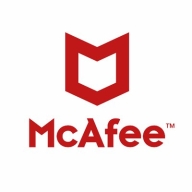


McAfee Total Protection and Check Point CloudGuard Code Security compete in the domain of data loss prevention and advanced threat detection, respectively. Check Point CloudGuard seems to have an edge with advanced threat detection capabilities that appeal to development environments requiring real-time assessments.
Features: McAfee Total Protection focuses on robust data protection, easy management, and affordability as key features. Its single management platform simplifies operations for endpoint security. Check Point CloudGuard Code Security offers advanced threat detection, automation, and comprehensive multi-cloud monitoring, tailored for development environments seeking real-time security assessments and analytics.
Room for Improvement: McAfee struggles with heavy system resource usage, lack of virtual desktop features, and high support costs. Users call for enhancements in its management console. Check Point needs to address documentation availability and slow technical support, with improvements suggested for API security and third-party tool integration.
Ease of Deployment and Customer Service: McAfee favors on-premises deployment for established IT infrastructures but faces challenges in support accessibility. Check Point offers flexible deployment across hybrid and private clouds, yet both solutions experience issues with quick and efficient technical support solutions.
Pricing and ROI: McAfee is viewed as expensive, with some users noting high licensing costs despite positive ROI reports. Its pricing model involves annual fees deemed affordable due to effectiveness. Check Point is recognized for cost-effectiveness, yet users desire better pricing transparency. Both products show ROI potential, with Check Point benefiting from partnerships to mitigate costs.



Cloudflare is a highly-regarded Content Delivery Network (CDN) and a Distributed Denial-of-Service (DDoS) protection solution. The robust global connectivity cloud platform that is Cloudflare ensures users are able to connect to the Internet quickly, securely, and reliably. Cloudflare is one of the world's largest networks in the marketplace today. Using Cloudflare, businesses, educational entities, NGOs, vloggers, bloggers, and anyone else with an internet presence can experience more secure, faster websites and applications.
Currently, there are millions of Internet locations on Cloudflare, and the Cloudflare network
continues to grow every day by the thousands. The solution is able to fulfill the requests for
millions of websites seamlessly and serves on average 45 million HTTP requests per second.
Cloudflare has safe, secure data centers in close to 300 cities worldwide to ensure every
client request is filled as quickly as possible. It is Cloudflare’s edge network that makes this
possible by keeping content and other services as close to each client as possible, so the
information requests are always only seconds away.
Many organizations that work in democracy, civil society, human rights, or the arts are able to
access Cloudflare's highest levels of protection for free via Project Galileo. Additionally, official
election websites can be secured from hacking and fraud through Cloudflare’s Project
Athenian, also at no additional cost.
Cloudflare can also help organizations of all sizes develop a robust zero-trust strategy to
ensure the highest levels of productivity and profitability. Employees, stakeholders, and end users have a greater level of satisfaction and overall improved user experience, which can, in
turn, result in higher revenues and overall ROI. Zero-trust and BYOD (bring your own device)
access ensure end users and employees always have the best resources and technology
available to them at all times.
Cloudflare benefits
Cloudflare has many benefits. Some of its most valuable benefits include:
- Faster load times
- Robust DNS security
- Intuitive cloud Web Application Firewall (WAF)
- Free universal SSL
- Image enhancement
- Automatic browser caching
- Next-generation cloud load balancer
- Accelerated Mobile Pages (AMP)
- Rate limiting
- Minification
- Zero-trust capabilities
- Cost-effective
- Reduced carbon footprint
Reviews from real users
“Many websites require an SSL certificate because they sell stuff and want SSL. Cloudflare
comes with an SSL certificate built in. It's automatic. You sign yourself up for Cloudflare, and
an SSL certificate automatically protects your website. If you have a connection between your
website and your host, the server, Cloudflare, and the host, you don't necessarily need a
certificate.” Spencer M., Owner at Tech Exchange
“What I like best about Cloudflare is that my company can use it to trace and manage
applications and monitor traffic. The solution tells you if there's a spike in traffic. Cloudflare
also sends you a link to check your equipment and deployment and track it through peering,
so it's a valuable tool.” Daniel P., Network Engineer at Ufinet
“The most valuable feature of Cloudflare is the GUI. You are able to control the solution very
well through the interface. There is a lot of functionality that is embedded in the service.” PeerSpot user, Competence Center Manager at a tech services company
Check Point CloudGuard Code Security enhances application and site security in Microsoft Azure, detecting vulnerabilities, preventing breaches, and safeguarding against malicious activities while ensuring compliance and improving code quality.
Check Point CloudGuard Code Security, designed for cloud and on-premise environments, scans applications configurations, detects exposed credentials, and aligns with legal frameworks. It offers simple implementation, centralized management, customizable rules, and improved security practices. It supports multiple clouds, offers real-time data loss prevention, advanced posture management, and remediation guidance. It enhances policy enforcement and provides powerful analytics, intuitive dashboards, and automation for reduced human error and better security.
What are the key features of Check Point CloudGuard Code Security?Check Point CloudGuard Code Security is vital in industries where securing cloud and on-premise environments is critical. For instance, in finance, it aids in regulatory compliance and protects sensitive data. Healthcare relies on it for safeguarding patient information, while tech companies use it to protect intellectual property during development. In retail, it enhances security against cyber threats, securing transaction data and customer information.
We monitor all Data Loss Prevention (DLP) reviews to prevent fraudulent reviews and keep review quality high. We do not post reviews by company employees or direct competitors. We validate each review for authenticity via cross-reference with LinkedIn, and personal follow-up with the reviewer when necessary.